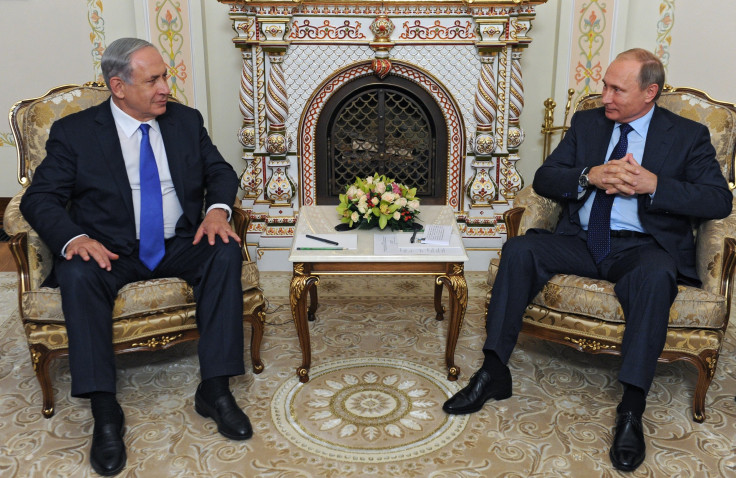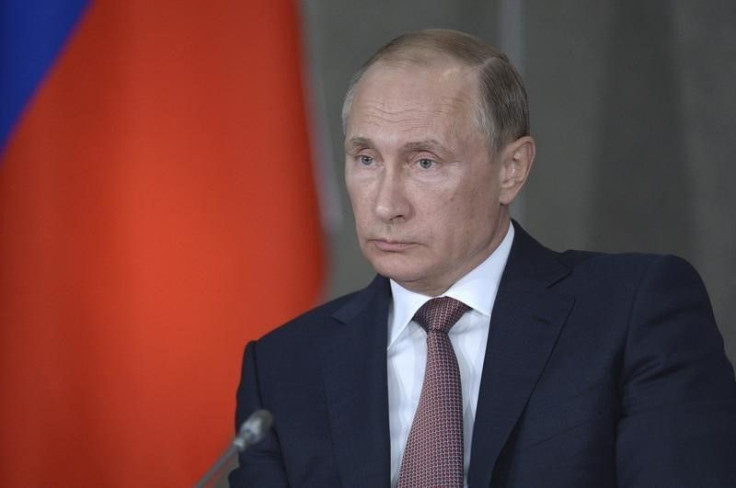Israel-Russia Relations Update: Netanyahu Visits Putin Amid Heightening Tension In Syria

Israeli Prime Minister Benjamin Netanyahu flew to Russia Monday to meet with President Vladimir Putin and discuss "the global terrorist threat." In a rare move, Netanyahu brought key military advisers to the closed meeting, as reports of Russia's increased military presence in Syria continued to surface.
Netanyahu brought two top Israeli generals with him, which is highly unusual in a diplomatic visit, according to the Jerusalem Post. "Bilateral cooperation matters and current international affairs will be the main subjects of discussion," read a statement posted to the Russian president's website Monday. "In particular, Mr. Putin and Mr. Netanyahu will exchange views on the Middle East peace process and the fight against the global terrorist threat."
Israel and Syria have fought several wars, and Israeli officials are increasingly concerned that Syrian weapons are going to Hezbollah, the Lebanese militia allied to the Assad regime and a U.S. state-designated terror group that targets Israel. The Israelis warn that if Russia increases its military support to Syria, Hezbollah could acquire arms to add to the thousands of missiles it has aimed at their country.

While President Bashar Assad's regime is opposed by the United States and European Union nations, Russia has remained staunch in its support. Russia has moved fighter jets to Syria, U.S. defense officials reported Friday, which alarms the Israelis.
Israeli authorities said they were also concerned of an accidental exchange of fire between Russian and Israeli aircraft over Syria. Israel often flies surveillance missions over southern Syria to target Hezbollah, and if communication is not open, the two nations could accidentally attack each other.
"What's important is Putin's commitment not to get mixed up in arming Hezbollah, which should help Israel, if it goes in there, to keep a safe distance from the Russians," said one former Israeli adviser who spoke on the condition of anonymity to Reuters, adding, "It is pretty clear that Putin is not looking for a fight with Israel."
© Copyright IBTimes 2024. All rights reserved.






















